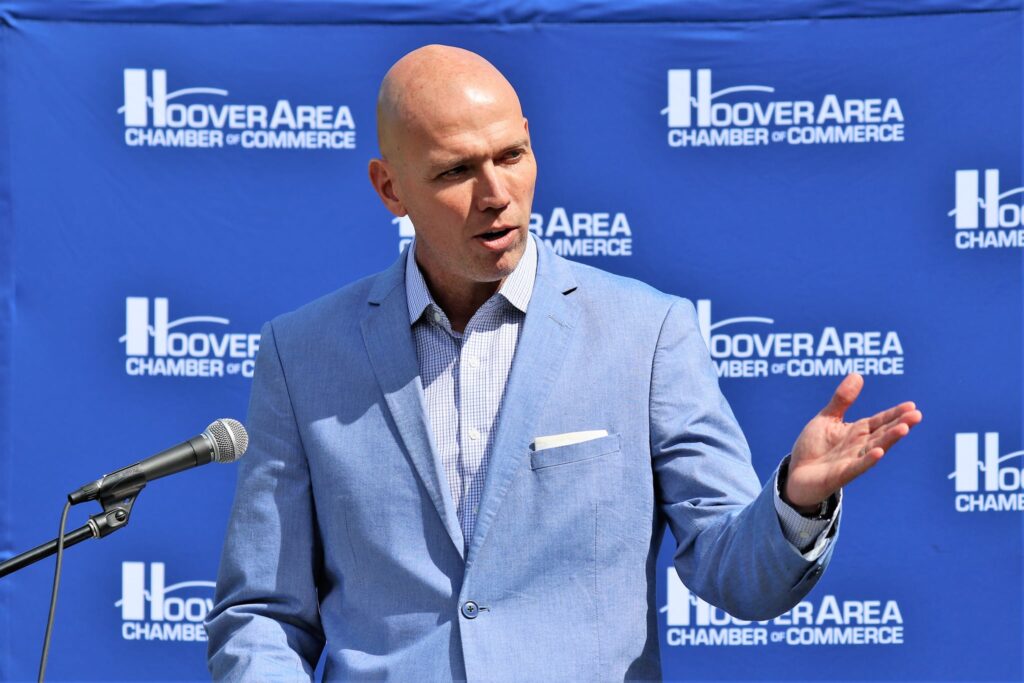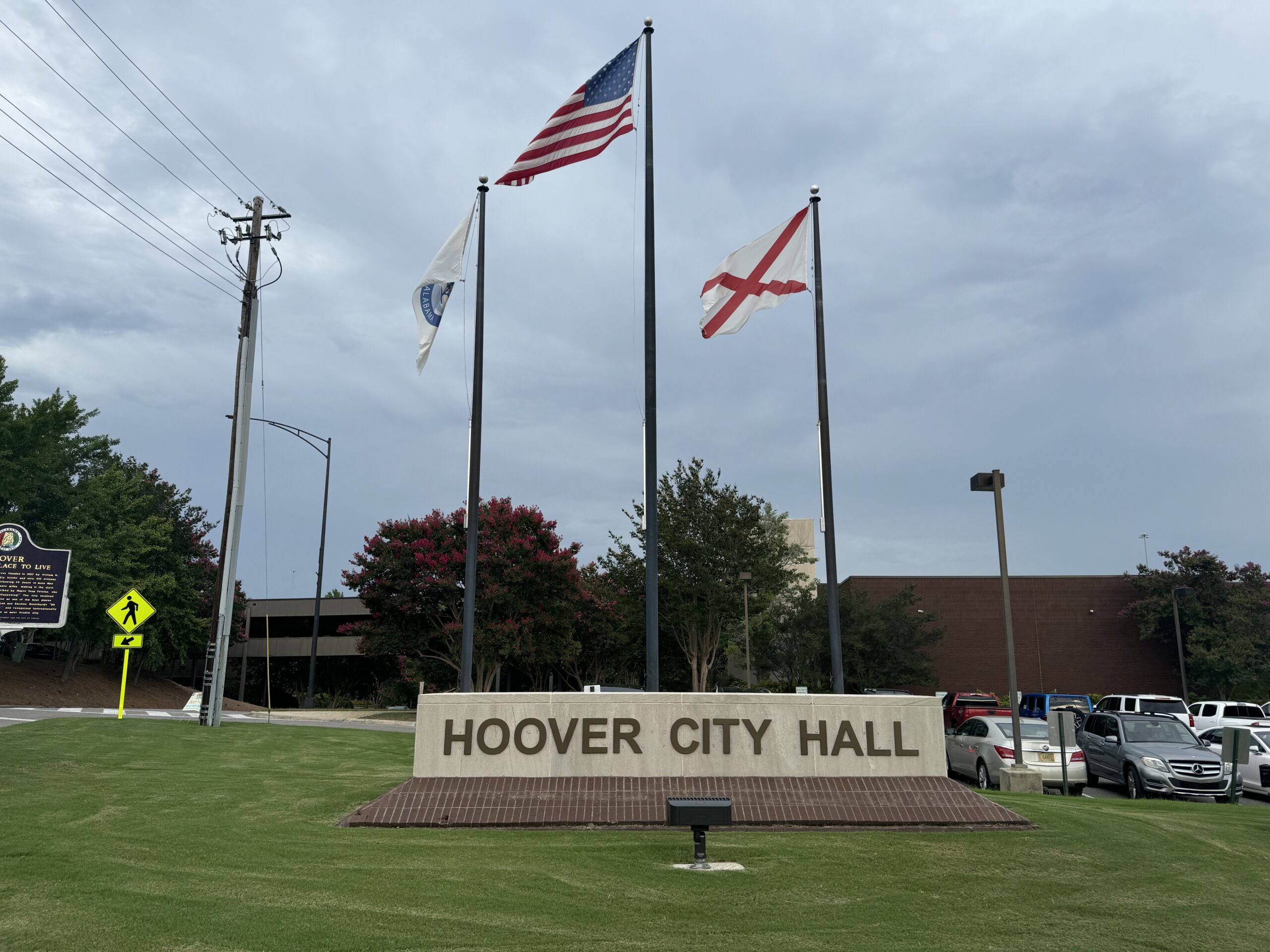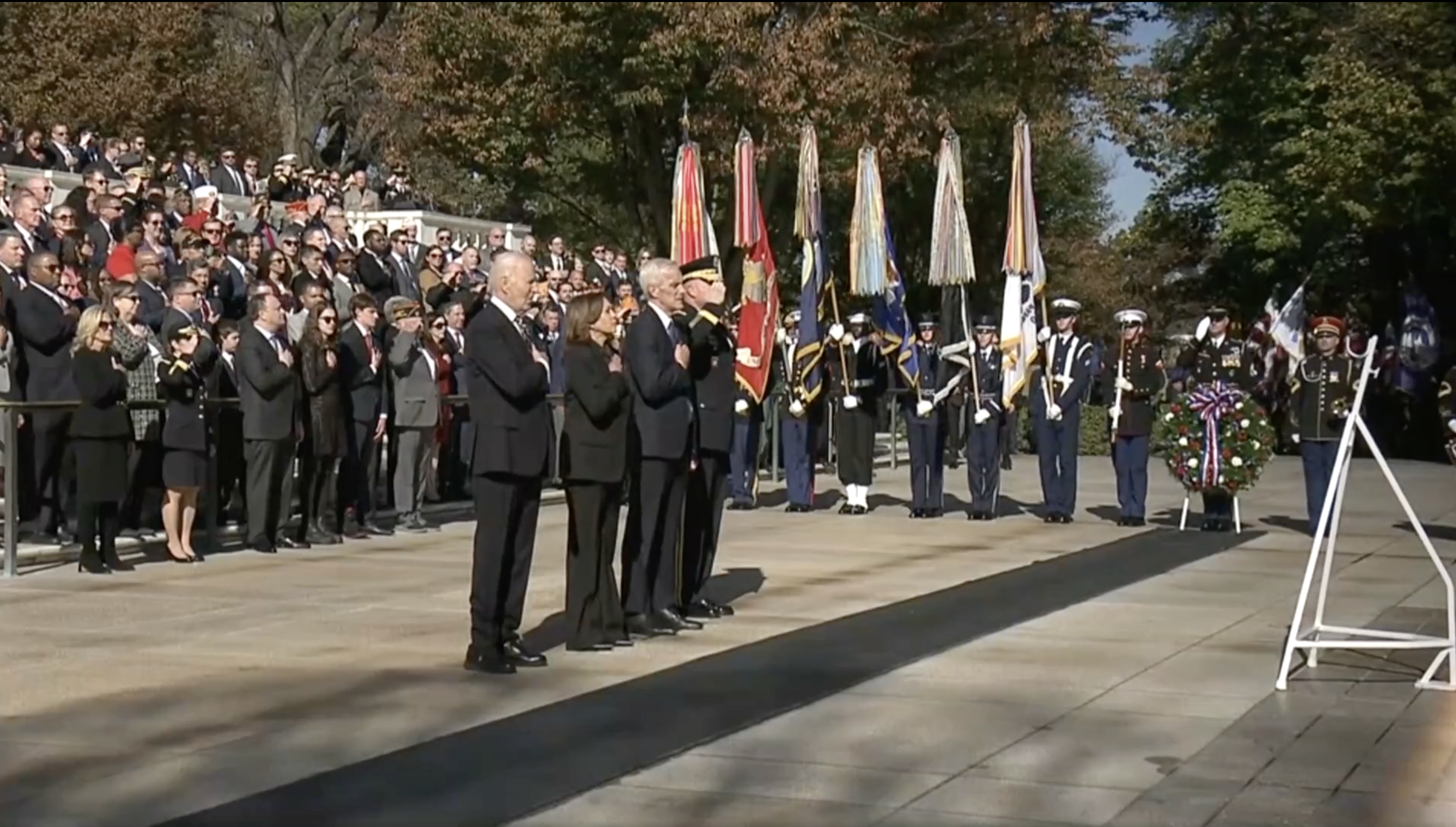Here in Alabama, football is beloved; there’s nothing like an unexpected play in a big game, something like a quarterback fake—a play requiring skill and precision akin to a magician’s sleight of hand. But while deception entertains on the field or stage, it’s troubling in local politics.
Hoover has been rocked of late by confounding admissions, accusations, and unanswered questions, dividing the city council and fracturing relationships. Some are unaware of the turmoil at City Hall, while others ponder the way forward.
City leaders, led by Mayor Frank Bracoto and Council President John Lyda, have sought to downplay or ignore question upon question and issue upon issue.
City Administrator Ken Grimes followed their lead earlier this week and responded to concerns posed by residents on Facebook. Though the story he was responding to provided video evidence of a direct quote by the CFO and statements made in sworn testimony by the mayor, Grimes called it “junk taken out of context.” He didn’t clarify whether it was the mayor’s comments or the CFO’s that he believed was junk or what additional context he thought was needed to understand why a lease was signed before the costs were known or why the mayor said under oath that he hadn’t read it.
Observers agree that the unfolding saga is more complex than officials admit, and a resolution is unlikely unless transparency improves.
Could these issues be a series of unintentional and unrelated fumbles? Perhaps, but why would those involved leave them lingering and unaddressed for so long?
For several years now, Lyda, Brocato, and their supporters have treated nearly every inquiry of questionable behavior as mere distractions rather than cause for concern.
Until now, different situations have been treated as one-offs rather than a pattern, but a clear pattern is emerging, and I’m here to lay it all out for you in story form.
Why story form? While not exactly boring in these circumstances, the interworkings of city government aren’t particularly riveting either. The facts laid out here are just that: facts. They stem from dozens of interviews, reviewing dozens of media stories, council meeting videos (no thanks to the city), searching for documents buried in dense public meeting packages, and reviewing audio recordings of testimony from the sparsely attended recent hearings. The city itself has been…less than helpful.
Buckle up for a true story told in parts to bring the many converging details together for the first time. This is, without a doubt, just the beginning.
Chapter 1: Darkness Slowly But Steadily Descends on the Field
Once upon a time, Hoover seemed to have a government guided by the conservative values of small government, fiscal responsibility, transparency, and accountability. However, as the city’s population, economy, and infrastructure grew, sunshine faded on the public information accessible to those who live, work, and do business there. I live in neighboring Birmingham and heard the city was overwhelmingly conservative, so imagine my surprise when I learned that while the state was going forward, Hoover was going backward with public information.
Around August 2021, city officials sparked controversy by deleting years of council meeting videos from their official YouTube channel without notice or explanation. When confronted, no one would take responsibility for the decision. The city attorney, Phillip Corley, told The Hoover Sun, “This was a council policy communicated by the council president to the city clerk.” The Sun asked follow-up questions about the conflicting information from the City Attorney and evidence of when the videos were discovered missing, and his questions were ignored.
The move to limit the availability and coverage of videos prompted the launch of The Hoover Channel, a YouTube page with over 200 videos created by Robin Schultz. He and his teenage grandson, Jackson Schultz, maintain the site. Based on what I witnessed at the last council meeting, Jackson did the technical camera work while Robin sought answers and accountability from the council himself. After the meeting, Jackson hurried his grandfather along to help him pack up the bags of equipment they used.
After the council was questioned about the deletions, Lyda informally polled the council members and formalized a new policy. The new one restricted the city’s livestream. It would now end before the public comments section of the meeting, and the city was now not only allowed to delete the videos after 60 days or after minutes had been approved but required to do so. I’ve talked to multiple people about this, and not one person can explain the positive benefit of deleting the videos for the city if there’s no liability related to what has been done or said.
Corley, the city attorney, defended the council’s actions. I’m paraphrasing here, but he essentially said residents who want public meetings, made and kept public using equipment they’ve paid for, are ungrateful little curious cash cows for the city who are lucky to get any video at all and should take what he and the council decided behind closed doors to give them and shut up.
Okay, I added a lot of color to that last part. His actual quote was, “He advised the city that state law does not require meetings to be videoed or livestreamed, or for recordings of meetings to be made or preserved.”
It’s worth noting that Corley’s name comes up again at least twice in this sordid series of stories. First, when the city increases the outside attorney budget by $500,000, and then when the mysterious forensic audit becomes public.
These moves and curious cleanup, some would say coverup, were just the beginning. Residents and other sources have pointed out that the meeting minutes of city council meeting have also undergone changes over the last several years. Descriptions of council actions have become incredibly vague, often omitting crucial details of pre-vote discussions and questions/answers relevant to future research, reporting, and glorious editorial storytelling.
Remember that these half-baked minutes are all the city attorney says the law requires them to do. If he and Lyda had their way, you would not be able to go back and see important discussions. Thank goodness for The Hoover Channel they’re all still online for the world to see. I say that, meaning no offense to the City Clerk, who I still hope provides the public records I requested and the ones I’m working on requesting. I’m sure the decision to make these changes came from above.
If I were cynical, I’d suggest that this change in transparency is just the first step towards clearing the way of recording the head fakes or head fakes that will follow.
Chapter 2: The Quarterback Fake
The fireworks in our fair Hoover flew in April of this year when Lyda blindsides a stunned crowd in a council meeting, bringing up two-decades-old facts from a developer’s past to object to a project with overwhelming support.
Lyda’s concerns came not only after nearly 15 months of negotiations on the development at hand but also after the successful first phase of development, which broke ground in 2017.
So when and why did things go south? I’m not sure anyone will ever get an honest answer on that, but it turns out another plan was in the works during the negotiations — with a different developer. Not terribly far from one another, the plans curiously included the same two types of cornerstone facilities: a performing arts center and a medical facility that would require a Certificate of Need from the state.
Lyda’s weaponized use of one of the developer’s past and handling of his concerns resulted in a domino effect of special meetings called and then canceled (because there wasn’t a quorum), as well as what can only be described as an attempted and unsuccessful coup to take the gavel from him. That attempt was notable in part because it happened while Lyda was out of town, and the breakdown of the vote closely mirrors the way the council seems to vote or operate in its current form. Three voted to replace Lyda: Dr. Casey Millbrooks, Curt Posey, notably the chairman of the finance committee, and Steve McClinton. Lyda ally and usually a mirror vote with him Khristi Driver was the lone no vote. While both Sam Swiney and Derrick Murphy abstained.
One plan was ultimately fast-tracked, with complex leases signed. Yes, I meant that to be plural. There are two leases for the same building: one with the City of Hoover and one with the Hoover Healthcare Authority. To find these documents, citizens are expected to review a 585-page council meeting package that is not available on the City website but can be found…you guessed it. Linked to the video of the work session meeting posted by The Hoover Channel. Who doesn’t routinely know to do these things in their free time?
Note by the way that both entities that have leases are funded from the same budget; the healthcare authority does not have an independant revenue stream. The leases go with never-before-seen incentives, pre-payments, and tax abatements. That’s a story for a different day. Remember, the ball in this long metaphor is the changes toward and a continuing lack of transparency and accountability.
At this point, I want to remind everyone reading this that you’re likely curious about what is going on with the council and the competing developments. That’s what you’re supposed to be wondering. That’s the fake handoff, the play that is supposed to distract you from more important matters. The next move of the play is the important one.
Chapter 3: Details emerge of “financial disarray” and ongoing forensic audit
With a new CFO (the third one in five years), questions arise about internal processes and controls, issues that are reflected in the City’s last formal audit, which Alabama Today reported on in the first of a lengthy series.
Could something be amiss? I emailed the city PIO Melanie Posey-Joseph on May 17 and again on May 31 and followed up with several phone calls asking direct questions about the audit process; during a short phone conversation, she assured me that she would get back to me after the SEC events because the events were “all hands on deck.” When pressed, she confessed that she knew the answers to several of my questions, but she refused to tell me.
In the same conversation, she made a side comment that the city disputed information published in that first story but failed to provide details except for pointing out a typo in the spelling of the CFO’s name, which I corrected.
No further contact has been received from her; if not for seeing her myself when she came in late to the last city council meeting, I would have encouraged the city to send search parties and drones to search SEC locations where she was last seen.
Then came the hearings for the contested Certificate of Need. City attorneys (man, they’re coming up a lot in this story) decried this hearing as a waste of time and taxpayer money, but I’d argue that the details revealed during it were incredibly beneficial for residents to understand some of the duplicity that has allegedly occurred behind the scenes. The city itself did little to encourage public attendance while defending their application. As a matter of fact, the crux of the hearing was to determine the “need” vs. the “want” for the license at hand to be awarded, and in testimony, Lyda said that the project was primarily an economic development project, which city lawyers quickly walked back to.
Probably worth noting, that wasn’t the only accusation that city lawyers and officials lobed and was subsequently denied. Longtime Hoover philanthropist and consultant Pat Lynch also faced damning accusations that he, too, called false and flatly denied. Lynch was unable to testify for health reasons and was admitted to the hospital the same day that he was to be called. His lawyer clarified, however, that Lynch stood by a previously notarized affidavit defending himself and accusing Lyda of making threats against the developer.
Weeks after I asked questions (the ones that still have not been answered), I got a few answers, albeit unintentionally, from the city during testimony at the CON hearings. Under oath, City Councilor Driver (the only city council member besides Lyda invited by the city to actively participate in the hearings) confirmed that the city attorney had hired a forensic audit firm.
According to their website, Kroll’s forensic investigators and analysts deal with complex challenges, including “fraud, corruption and money laundering, intelligence, transactions and due diligence, reputational risk, regulatory and compliance risk, litigation and disputes and information and IP risk.”
No further information has been made public, and no resolution has been voted on that specifically addresses how the forensic audit will be paid for or authorized.
One city councilor explained the need for an audit, describing the city’s current situation as “financial disarray.” Two weeks ago, I submitted a formal public records request with the city about the hiring of the forensic audit firm and the process for choosing them. That request was acknowledged via email as having been received, and I checked with the clerk at the last meeting to confirm she personally knew of the request; however, there has been no other response.
When asked about the city’s usual response time to records, the City Clerk could only say “that depends.” I have since been made aware of three requests from Hoover residents: two claim that they were never given a response, and one that the answer was provided approximately two weeks later.
Is this the real play? Hiding financial challenges and public information. The long shot pass when everyone is caught up focusing on the proposted development changes of their own interest? Time will tell.
Chapter 4: Who wins the game?
The play has been called, and the city is in the middle of the handoff. Do residents see what’s happening right in front of them and stop it before the move succeedsl? Time will tell, and the game clock is running.
The future of governance in Hoover hangs in the balance, dependent on forthcoming transparency and decisive action to restore public trust.
*This post has been updated to note that the adopted video retention policy was not passed as a formal resolution.
This is an opinion column. Apryl Marie Fogel is a former talk radio host and can frequently be found as a guest on radio throughout the state.
Related
Share via:














